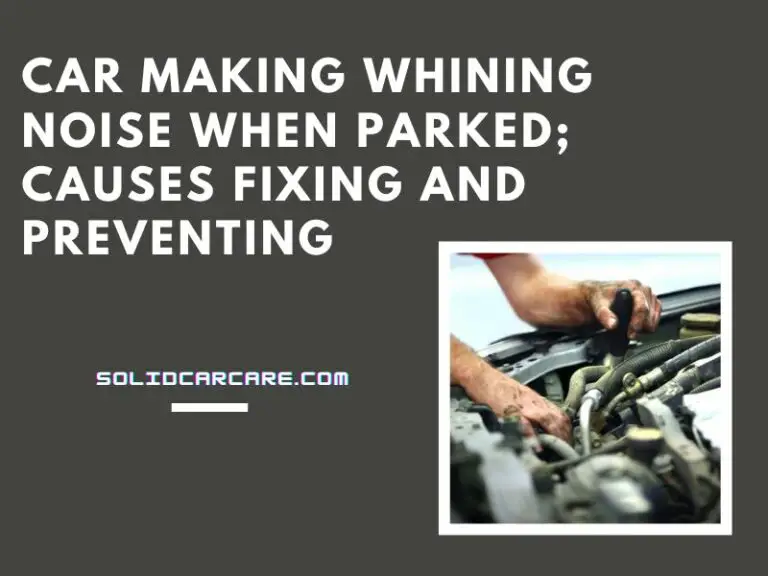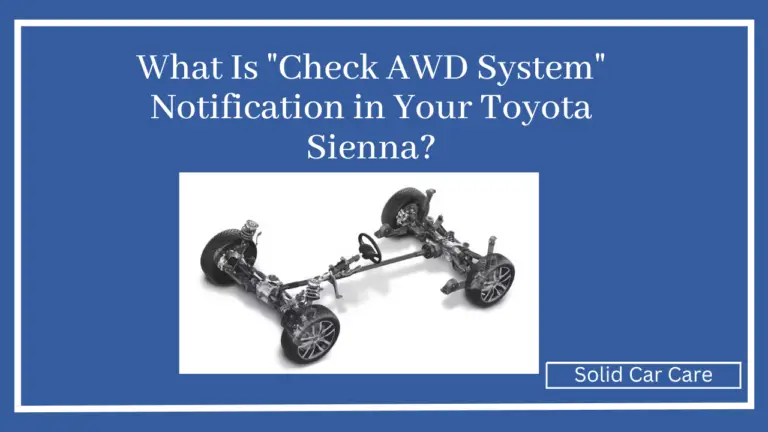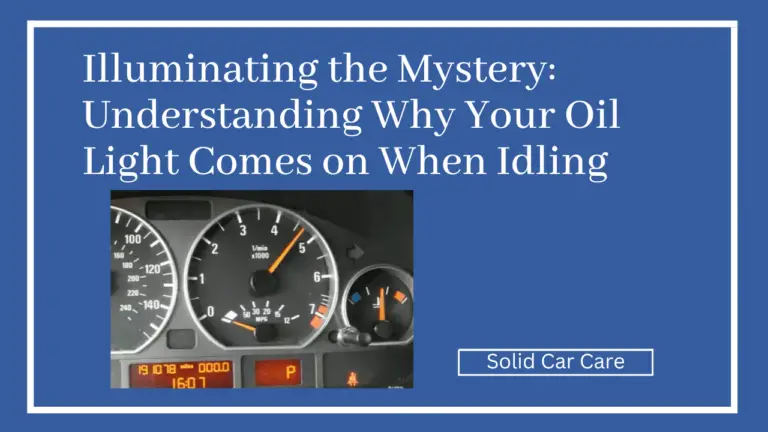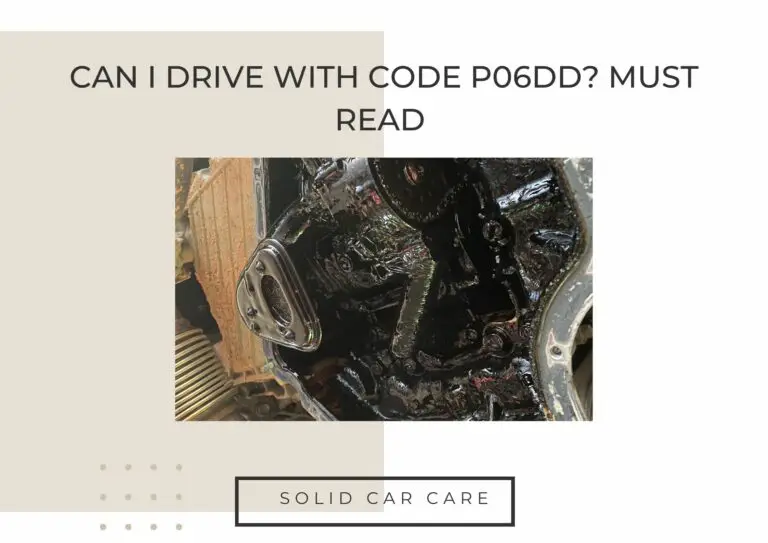Car Making Humming Noise When Parked; Why?
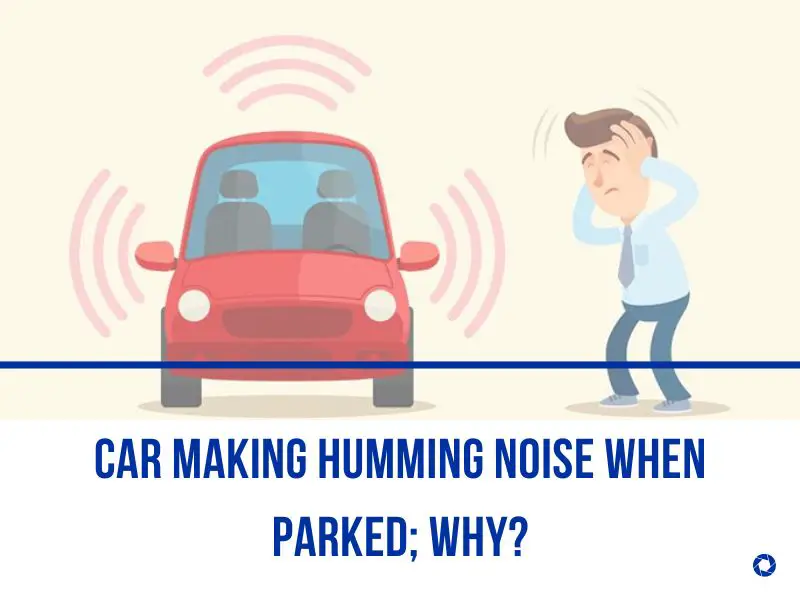
Are you tired of the constant humming noise that haunts your parked car? It’s like a never-ending symphony of mysterious sounds that keeps you on edge.
Well, fear not, because in this discussion, we will unravel the secrets behind this enigmatic noise. We will delve into the various potential causes, ranging from drive belt issues to worn wheel bearings, and even the possibility of low oil in the differential.
But that’s not all; there are even more potential culprits waiting to be revealed. So, sit tight and prepare to uncover the truth behind that perplexing humming noise in your parked car.
Table of Contents
- Key Takeaways
- Drive Belt Issues
- Wheel Bearing Problems
- Differential Problems
- Electric Motor Noise
- Fuel Pump Noise
- Additional Potential Causes
- Conclusion
- Some related FAQs.
Key Takeaways
- Drive belt issues, such as wear and misalignment, can cause a humming noise in a parked car. Regular maintenance and timely replacement of drive belts can prevent further damage and noise.
- Worn wheel bearings can also contribute to a humming noise when a car is parked. Symptoms include increased vibration and steering instability. Regular maintenance, such as greasing and cleaning, can ensure the longevity of wheel bearings.
- Differential problems, such as insufficient fluid levels or worn gears, can lead to increased friction and a humming noise when the car is parked. Proper maintenance, including checking for leaks and using noise reduction techniques, can minimize differential noise.
- Electric motor noise can be a factor in hybrid or electric cars emitting a humming sound when parked. Battery maintenance and strain during charging can contribute to the noise. Insulation and sound dampening materials can help minimize electric motor noise.
Drive Belt Issues
If you hear a humming noise coming from your car when it’s parked, one possible cause could be drive belt issues. Drive belts are an essential component of the engine system, responsible for transferring power from the engine to various components such as the alternator, power steering pump, and air conditioning compressor.
Drive belt maintenance is crucial to ensure optimal performance and prevent issues. Signs of worn drive belts include squealing, cracking, or fraying. To diagnose drive belt issues, visually inspect the belts for any signs of wear or damage. Additionally, you can manually check the tension of the belts by pressing down on them. If there’s excessive play, the belts may need adjustment or replacement.
Drive belt alignment techniques involve checking the alignment of the pulleys and adjusting them if necessary. Drive belt replacement options include using OEM belts or aftermarket belts, which may vary in price and quality.
Regular drive belt maintenance and timely replacement can help prevent further damage and ensure the smooth operation of your vehicle.
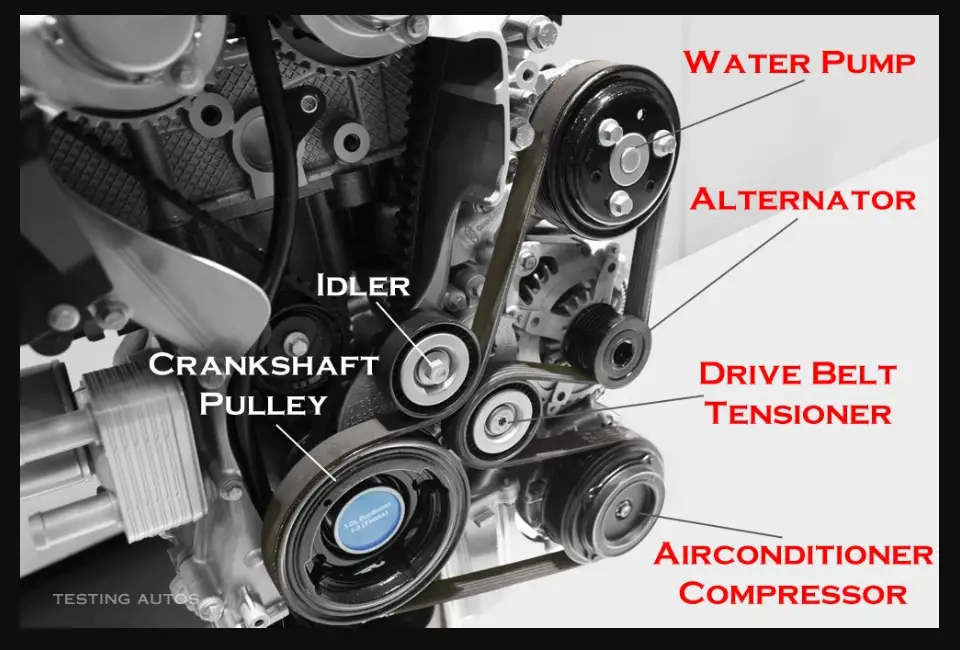
Wheel Bearing Problems
Wheel bearing problems can cause a humming noise in your car, especially as you drive. It’s essential to be aware of the symptoms and signs of worn wheel bearings.
These include a persistent humming or rumbling noise, especially when turning corners, as well as increased vibration and steering instability.
To properly diagnose wheel bearing issues, you can perform a few tests. First, you can try shaking the wheel to check for excessive play. Another method is to listen for the noise while driving and see if it changes when turning or accelerating.
Common causes of wheel bearing failure include lack of lubrication, contamination, and excessive loading.
To prevent wheel bearing problems, it’s crucial to perform regular maintenance, such as greasing and cleaning the bearings. Regular maintenance is essential to ensure the longevity and proper functioning of your wheel bearings.
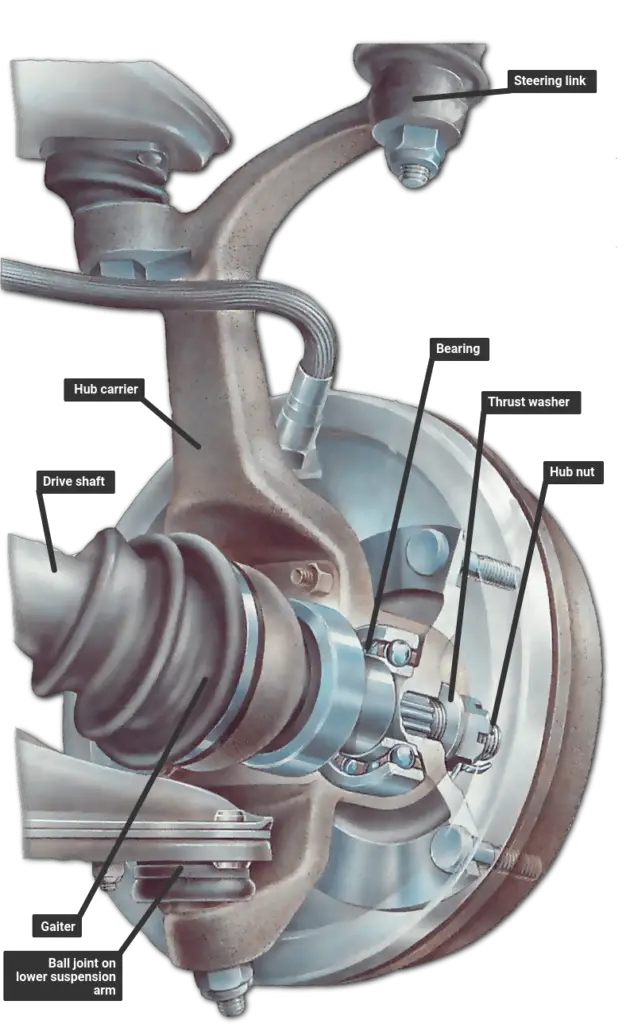
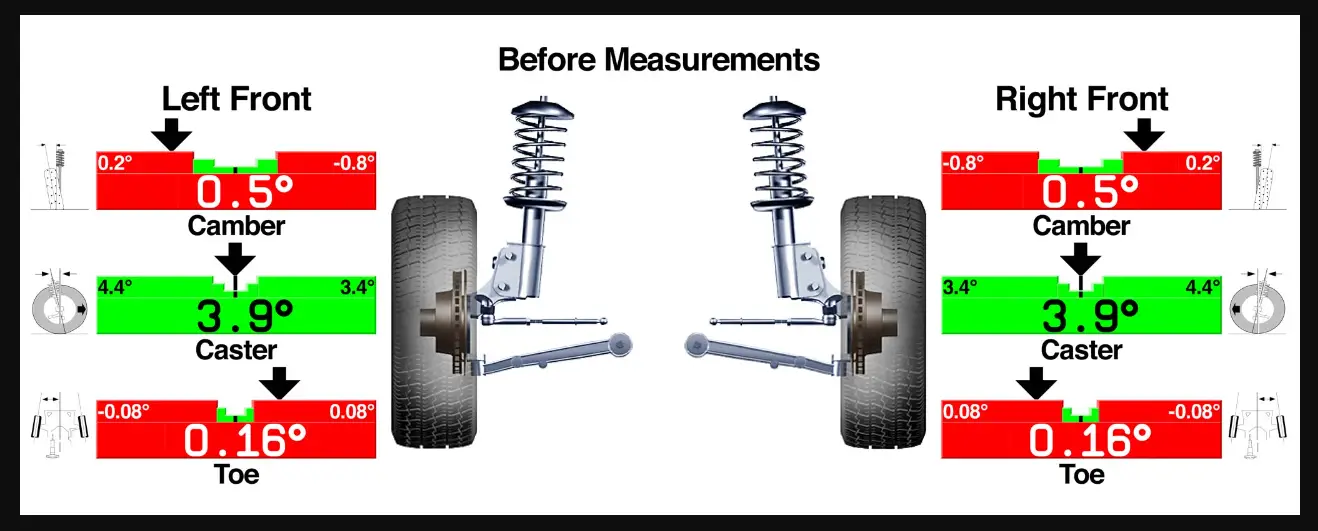
Differential Problems
Differential problems can manifest in various ways, causing unsettling noises and affecting the performance of your vehicle. It’s essential to identify and address these issues promptly to prevent further damage. Here are some potential differential problems to be aware of:
- Differential fluid levels: Insufficient fluid can lead to increased friction and wear on the gears, resulting in a humming noise.
- Worn gears: Over time, the gears in the differential can become worn, causing noise and affecting the vehicle’s overall performance.
- Oil leaks: Leaking differential oil can lead to inadequate lubrication and increased friction, resulting in noise and potential damage.
- Vibration issues: Imbalances or misalignments within the differential can cause vibrations, which may be accompanied by humming noises.
- Noise reduction techniques: Implementing sound-dampening measures, such as using noise-reducing materials or addressing loose components, can help minimize differential noise.
If you experience any of these issues, it’s recommended to consult a professional mechanic to diagnose and resolve the problem promptly.
Electric Motor Noise
Electric motor noise can be a common occurrence in hybrid or electric cars, especially when the vehicle is parked and in the process of charging. During the charging process, the electric motor may emit a humming sound due to various factors.
One factor is the battery maintenance, as the charging process can put strain on the battery, causing it to vibrate and create noise. Noise reduction techniques, such as insulation and sound dampening materials, can be implemented to minimize the noise.
Additionally, electric motor efficiency plays a role in the noise level. Well-designed and properly maintained electric motors are generally quieter.
It’s important to note that excessive electric motor noise can potentially impact the overall driving experience, as it may cause discomfort or distraction to the driver and passengers.
Fuel Pump Noise
During the discussion of electric motor noise in hybrid or electric cars, it’s important to address the issue of fuel pump noise, as it can also impact the overall driving experience.
Here are some key points to consider regarding fuel pump noise:
- Fuel pump maintenance: Regular maintenance, such as cleaning or replacing fuel filters, can help prevent fuel pump issues and reduce noise.
- Common fuel pump problems: Fuel pump failures can result from issues like clogged filters, electrical problems, or worn-out components.
- Signs of a failing fuel pump: Some signs of a failing fuel pump include difficulty starting the engine, engine stalling, and decreased fuel efficiency.
- Troubleshooting fuel pump noise: If you suspect a noisy fuel pump, check for loose connections, damaged wires, or fuel leaks. A professional inspection may be necessary.
- How to reduce fuel pump noise: Insulating the fuel pump with sound-absorbing materials, ensuring proper installation, and using high-quality fuel can help reduce noise levels.
Additional Potential Causes
One potential cause of a car humming noise when parked is a malfunctioning or worn-out exhaust system. The engine cooling system plays a crucial role in regulating the temperature of the engine. If there are any issues with the cooling system, such as a faulty thermostat or a leak in the radiator, it could result in abnormal noises.
Transmission issues, such as low fluid levels or worn-out gears, can also cause humming sounds. Additionally, problems with the exhaust system, such as a damaged muffler or a leaking exhaust manifold, can contribute to the noise.
Other potential causes include brake system noise, which can be caused by worn-out brake pads or a malfunctioning brake caliper, as well as issues with suspension components, such as worn-out bushings or a faulty strut.
It’s important to have a professional mechanic diagnose the exact cause of the noise to ensure proper repairs are made.
Conclusion
In conclusion, if you’re experiencing a mysterious humming noise coming from your parked car, there are several potential causes to consider. Drive belt issues, worn wheel bearings, differential problems, electric motor noise, and fuel pump noise are all possible culprits.
However, it’s important to consult a professional mechanic for an accurate diagnosis and solution. Remember, this list isn’t exhaustive, so further investigation may be necessary to resolve the issue.
Some related FAQs.
Can low transmission fluid cause hum?
When you shift gears, manual transmissions frequently make a loud clunking or grinding noise, whereas an automatic transmission sounds whiny or humming. Even though noises might suggest that the fluid level is getting low, you probably won’t be able to identify the issue on your own.
Why is my car humming after I turn it off?
After turning off the engine, you might still hear noises coming from the car. Some automobiles have systems set up to continue operating even when the engine is off, including engine cooling fans.
Can an alternator make a humming noise?
A malfunctioning car alternator (which is not producing any electricity) is silent. Depending on what failed, it makes a squeaking, squealing, scraping, grinding, or no sound at all. But most often there is absolutely no sound.
Why is my front end humming?
We’ll look at some of the causes of wheel bearing wear and tear in a moment. A bad wheel bearing typically makes a loud hum, similar to the loud road noise made by bad tires. Your transmission’s worn bearings or even low transmission fluid level can cause similar noise.

